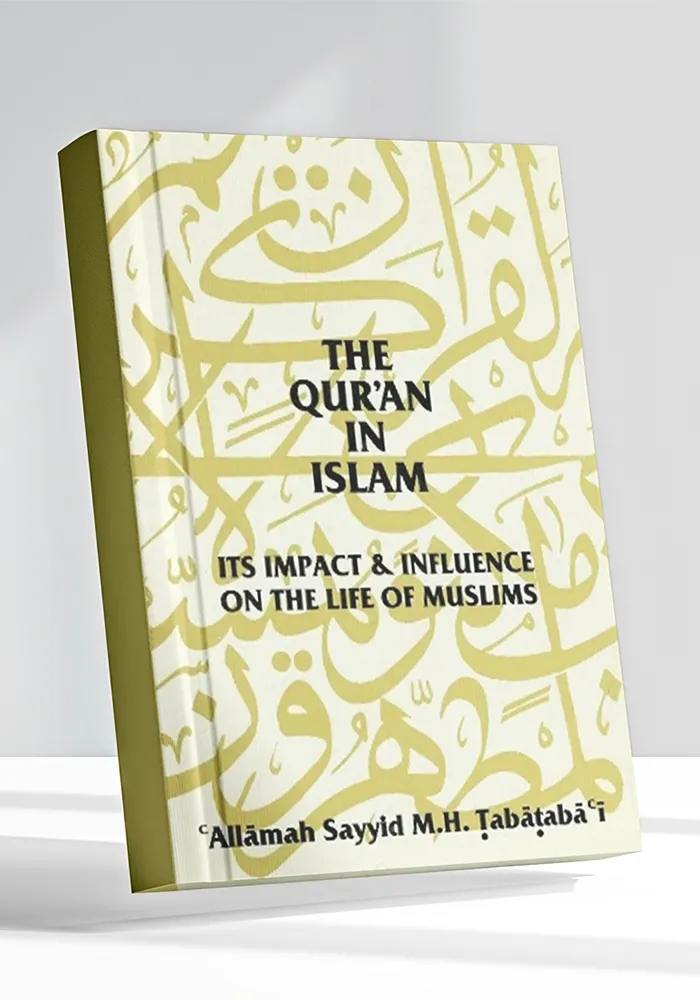The Qur’an in Islam – Its Impact & Influence on the Life of Muslims
The Qur’an in Islam – Its Impact & Influence on the Life of Muslims
By Allama Sayyid Muhammad Husayn Tabatabai
Allama Sayyid Muhammad Husayn Tabatabai, one of the most renowned Shia scholars of the 20th century, presents a profound and meticulous examination of the Qur’an’s role in the life of a Muslim in his book The Qur’an in Islam. This work serves as both a theological exposition and a response to misconceptions about the Qur’an’s authenticity, interpretation, and application.
Summary of the Book
The book is structured to address key aspects of Qur’anic studies, including:
- The Divine Nature of the Qur’an – Tabatabai explores the Qur’an’s status as the unaltered word of Allah, tackling historical and theological debates surrounding its preservation.
- The Qur’an and the Prophet (s) – A significant section is dedicated to how the Prophet Muhammad (s) conveyed, interpreted, and implemented the Qur’anic message in his life and governance.
- Exegesis and Interpretation – The book delves into the different approaches to tafsir (exegesis), distinguishing between the methods of the Ahl al-Bayt (a) and other schools of thought. He argues that a holistic understanding of the Qur’an is impossible without the guidance of the Imams (a), whose knowledge is divinely inspired.
- The Qur’an’s Role in Society – Tabatabai discusses how the Qur’an influences not just personal spirituality but also legal, political, and social structures within Islamic civilisation.
- Challenges and Misinterpretations – He critiques various misunderstandings of the Qur’an, particularly those that arise from reading the text in isolation from the teachings of the Ahl al-Bayt (a).
Critical Analysis
Tabatabai’s work is distinguished by its intellectual depth and reliance on rational arguments alongside traditional Islamic sources. His emphasis on the necessity of the Ahl al-Bayt (a) in understanding the Qur’an is a central theme, making the book an essential read for those interested in the Shia perspective on Qur’anic interpretation. His arguments are well-supported with both historical and theological evidence, reinforcing the idea that the Qur’an cannot be fully understood without reference to the divinely appointed Imams (a). However, the book may be challenging for readers unfamiliar with advanced Islamic philosophy or Qur’anic sciences. Some sections require a background in Islamic theology to fully grasp the significance of his arguments. Despite this, the book remains accessible due to its logical structure and clear writing style.
Relevance and Importance
For Shia Muslims, The Qur’an in Islam is a crucial text that highlights the unique relationship between the Qur’an and the Ahl al-Bayt (a). It serves as a reminder of the Qur’an’s centrality in guiding not just personal faith but also societal ethics and governance. For students of Islamic studies, it provides an insightful comparison between different methodologies of tafsir and the theological implications of these differences.
Conclusion
Tabatabai’s The Qur’an in Islam is a foundational work that deepens the reader’s understanding of the Qur’an’s role in a Muslim’s life. While it is particularly relevant to Shia Muslims, its scholarly approach makes it valuable for anyone seeking an in-depth study of the Qur’an’s interpretation. This book reinforces the need for a guided, authentic understanding of the Qur’an through the lens of the Ahl al-Bayt (a) and remains a vital resource in Islamic scholarship.
editor's pick
news via inbox
Subscribe to the newsletter.




